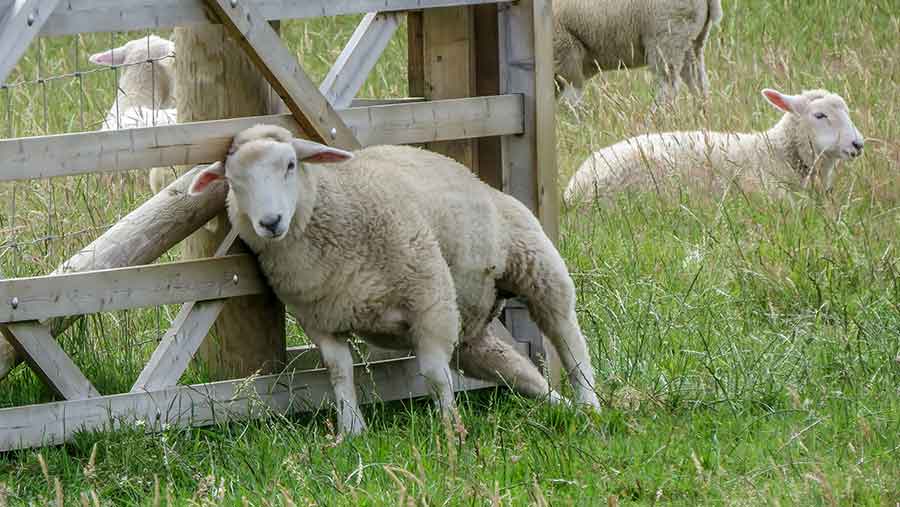Sheep scab project in Northern Ireland reveals extent of disease
 © Adobe Stock
© Adobe Stock A sheep scab project in Northern Ireland (NI) has found far higher levels of the highly contagious condition than previous notifiable disease reports suggested.
Sheep scab was detected in 70% of self-nominating (suspicious) flocks and 28% of the pilot (non-suspicious) common grazing area flocks that took part in the Biotechnology and Biological Sciences Research Council-funded project.
See also: Sheep scab: Symptoms, diagnosis and treatment
Interim results from the project were reported in Farmers Weekly last year.
The project concluded in June 2023, when findings confirmed how widespread sheep scab is across Northern Ireland.
They also showed a significant level of interest in dealing with the disease, according to Animal Health and Welfare Northern Ireland (AHWNI), which was part of the team running the project.
Diagnosis and advice
Initially, 155 flock owners were involved, and more than 100 went on to engage fully with the project.
Each nominated a private vet, who was funded to visit the farm to investigate whether sheep scab was likely to be present in their flock and advise on treatment.
Dipping was the treatment of choice in 72 flocks, while injectable macrocyclic lactones were used in 16 positive flocks – five of which required subsequent dipping.
The cost of application of dip or treatment with injectables was met by the flock owner.
Feedback from the project indicated that 81% of respondents would be willing to co-ordinate the timing of scab treatments with their neighbours.
All thought a programme dedicated to the control of sheep scab in NI would be useful in the future.
What prevents scab control?
Barriers to effective control identified by the project included:
- Cost of treatment
- Time taken to gather, test and treat sheep
- Lack of awareness of the economic effect of the disease
- Lack of physical help on farms
- Concern over dip disposal requirements
- Lack of sheep dip safety course provision in NI
- Lengthy withdrawal periods
- Infection on neighbouring farms
- Reluctance to report infection
- Lack of enforcement action in markets and abattoirs.
However, the project demonstrated the value of a collaborative approach, thanks to the availability of diagnostic tools and effective treatments, according to the project team.
Next steps
The next steps will be to engage with stakeholder representatives and the Department of Agriculture, Environment and Rural Affairs to explore options to support improved control, said Sharon Verner of AHWNI.
“We would hope that funding would be identified to allow the findings from this project to be built upon, so that methods of broader co-ordination could be established, leading to a regional control plan to improve sheep welfare, assist flock owners and achieve wider environmental gains,” she added.
The NI Sheep Scab Project was run by NI Sheep Scab Group, the Moredun Institute, Agri-Food and Biosciences Institute and AHWNI
